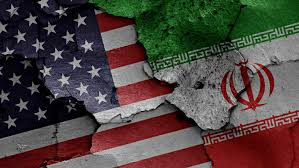Iran and the United States appear to be easing tensions as both countries head into political volatile election years, with the threat of an armed conflict that seemed increasingly likely just months ago fading away.
A weekend exchange of detainees between Iran and the United States brokered by diplomats indicated ongoing back-channel discussions among regional and global powers attempting to resolve the standoff between the two countries.
Analysts say prospects are exceedingly bleak for a broad deal between Tehran and the administration of Donald Trump over Iran’s pursuit of nuclear technology, its refinement of its missile programme, and its support for armed groups in the Middle East.
Still the weekend prisoner exchange, as well as diplomatic manoeuvres in Europe, Asia and the Middle East, suggest an improvement in relations from just a few months ago, and a diminishing possibility of armed conflict.
“It’s difficult to say because the Americans are not sharing anything with us, but there’s clearly a motive to calm things down,” said a western diplomat whose brief includes Iran.
Iran and the US earlier this year appeared locked in an escalating confrontation. Washington stepped up its campaign of “maximum pressure” targeting Iran’s economy and Tehran allegedly launched a series of attacks on US allies in the Middle East.
Diplomats and analysts say worried US allies in the Arabian Peninsula, particularly the rulers of Oman and the United Arab Emirates, played key roles in cooling down temperatures.
A shift towards accommodation with Iran in recent months by the UAE, a federation of seven monarchies with differing relations to Tehran, has also significantly lowered White House appetite for confrontation, said the western diplomat.
Iran also can boast some diplomatic successes which put it in a less confrontational mood. On Friday in Vienna, instead of a stormy session of nuclear deal participants over Iran’s recent alleged breaches of the 2015 agreement that the US had violated, all parties re-affirmed their support for the settlement, while China and Russia blamed Washington for Tehran’s moves.
Meanwhile a European financial instrument called Instex, intended to evade US sanctions on Iran, is being rolled out. Last week, Belgium, Denmark, Finland, Netherlands, Norway and Sweden joined the UK, France and Germany as shareholders, suggesting the barter mechanism was catching on.
On Monday, Iran’s president Hassan Rouhani described diplomatic negotiations as “necessary and revolutionary”, ahead of a high-profile state visit later this month to Japan, which has also served as intermediary between Washington and Tehran.
The Trump administration, too, finds itself compelled to show something for its hardline Iran policy as the polarised US enters closely watched 2020 presidential and congressional elections that will be shadowed by ongoing impeachment proceedings.
Goaded by Washington hardliners intent for years on stoking confrontation with Iran, the Trump administration launched a pressure campaign that backed itself into a corner, forced either to launch an armed conflict, back down on sanctions and make a deal, or go into 2020 elections with Iran hanging over it as a foreign policy flop.
“There’s been consternation in congress about Trump’s foreign policy in general, but specifically about Iran,” said Mr Batmanghelidj. “The maximum pressure campaign has been in place for a year, it has paid no dividends, and Iran is out of compliance with the nuclear deal. The Trump administration needs to be able to show some ability to negotiate with Iran.”
The Independent
 Lebanese Ministry of Information
Lebanese Ministry of Information



